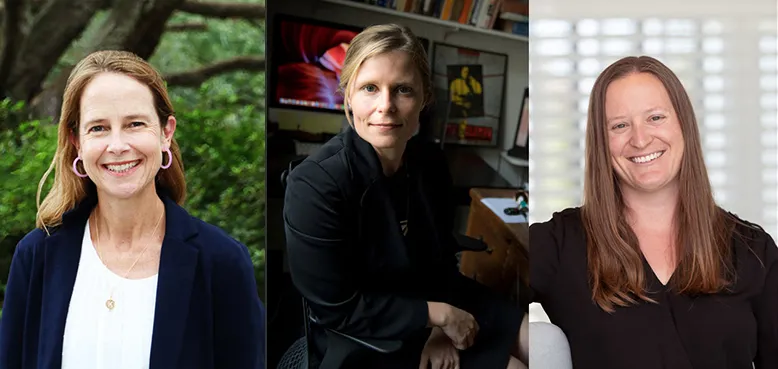
The School of Liberal Arts has been awarded a $225,000 grant from the Mellon Foundation to host a year-long seminar beginning next fall on the Tulane campus.
The highly regarded Sawyer Seminars were established by the Mellon Foundation in 1994 to provide support for comparative research on the historical and cultural sources of contemporary developments. The grant will fund a new postdoctoral fellowship and two fellowships for advanced PhD students, as well as costs associated with the year-long seminar. Tulane was also awarded a Sawyer Seminar in 2020.
The seminar series, which will launch in fall 2024, will pair established and emerging scholars alongside local New Orleans community partners to explore one of the most polarizing issues of our time: reproductive rights. The laws and policies in the U.S., both at the national and state level, continue to be the subject of heated debates and revisions, as is true of many nations around the globe. This seminar will use the lens of the humanities to help make sense of the current historical moment.
The seminar series is being co-organized by Professor of English and Gender and Sexuality Studies Kate Baldwin, Associate Professor of History Karissa Haugeberg, and Newcomb Institute Administrative Associate Professor Clare Daniel. It will bring local community leaders in New Orleans into conversation with international scholars researching reproductive health across a variety of fields in the humanities and the arts.
Participants will consider how we prepare the next generation of humanities scholars, policymakers, and activists for a world in which issues around reproductive rights will require new, collaborative ways of thinking.
“In centering Louisiana and the perspectives of those who have been historically marginalized, we look forward to conversations that fuse the dynamism of the arts with the intellectual rigor of the humanities,” Baldwin said. “We appreciate the Mellon Foundation’s support for this vital work.”
According to Daniel, who also serves as the assistant director of community engagement at the Newcomb Institute, the seminar presents an exciting and much-needed opportunity to bring together people working on reproductive self-determination in drastically differing contexts. “New Orleans is already a nucleus of incredible thinking and advocacy around reproductive rights, health, and justice,” she said, “and this series will bolster that work through a transnational dialogue.”
Haugeberg added, “By engaging in thoughtful, respectful, and evidence-based discussions about one of the most hot-button issues of our time, Tulane will do what it does best: showcase why the humanities matter now more than ever.”
"The brilliance of the proposal by professors Baldwin, Haugeberg, and Daniel is the way in which it puts the challenges we are facing in Louisiana and the Gulf South region in dialogue with global analogs,” said Brian Edwards, dean of the School of Liberal Arts. “By examining other national contexts where women’s reproductive rights had previously been criminalized but are now expanding, this project breathes new life and insight into one of the most vexing questions of our time.”

